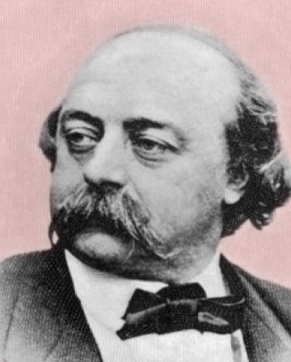
In September, we published a letter from Gustave Flaubert to his longtime mistress, poet Louise Colet, describing how men approach matters of the heart and how he liked to think of her as an intermediate between friend and mistress. Here, the passion remains, but is far more anguished; Flaubert writes of Colet’s cruelties against him and her apparent desire to tame his wild intellect.
[Croisset, Sunday, August 23, 1846]
Do you know you are cruel? You reproach me with not loving you, and point, as evidence, to my always leaving. That is wrong of you. How can I stay? What would you do in my place? You always speak to me of your sorrows: I know they are genuine, I have seen proof; and feel it in myself, which makes it the more convincing. But I see evidence of another sorrow, a sorrow constantly at my side; this one never complains, it even smiles, and, alongside it, yours, however exaggerated it may be, will never be more than what a fleabite is to a burn, a spasm to a death-agony. I am caught in a vise. The two women I love most are driving me with double rein: the bit is in my heart, and they are pulling on it with their love and grief. Forgive me if this angers you yet again. I no longer know what to say to you: I hesitate, now. When I speak to you I’m afraid of making you cry, and when I touch you, of wounding you. You remember my violent caresses, how strong my hands were: you were almost trembling. I made you cry out two or three times. But be more reasonable, poor child I love: stop grieving over chimeras.
You reproach me for my habit of analyzing. But you attribute to my words a wicked subtlety they do not have. You dislike the cast of my mind: the rockets it sends up displease you: you’d like me to be more consistent, more uniform, in my affections and my language. That should be you, you! who are now doing as others do, as everybody does—blaming me for the only good thing about me, my leaps and starts, my naive outbursts. Yes, you too want to prune the tree. Its branches may be unruly, but they are thick and leafy, and they reach out in all directions to breathe the air and the sun. You want to tame the tree, to make it into a charming espalier that would be trained against a wall: true, it would then bear lovely fruit, which a child could pick without a ladder. What do you want me to do? I love in my way: whether more than you, or less, God knows. But I love you, and when you say that I have perhaps done for vulgar women what I have done for you…I have done it for no one—no one: I swear it. You are absolutely the first and only woman whom I have ever been willing to travel to see—whom I have loved enough to do that for—because you are the first to love me as you love me. No: no one before you has ever wept the same tears, or looked at me in that sad and tender way. Yes: the memory of Wednesday night is my most beautiful memory of love. Were I to become old tomorrow, it is that memory that would make me regret what I had lost.
…Adieu. This is your name-day. As a bouquet I send you my best kisses.
FURTHER READING
For a review of the book, Lui: Me and Him, that Louise Colet wrote as a backlash against Madame Bovary, click here.
For the full text of Flaubert and Madame Bovary, Francis Steegmuller’s biography of Flaubert in relation to the genesis of his literary masterpiece, click here.


